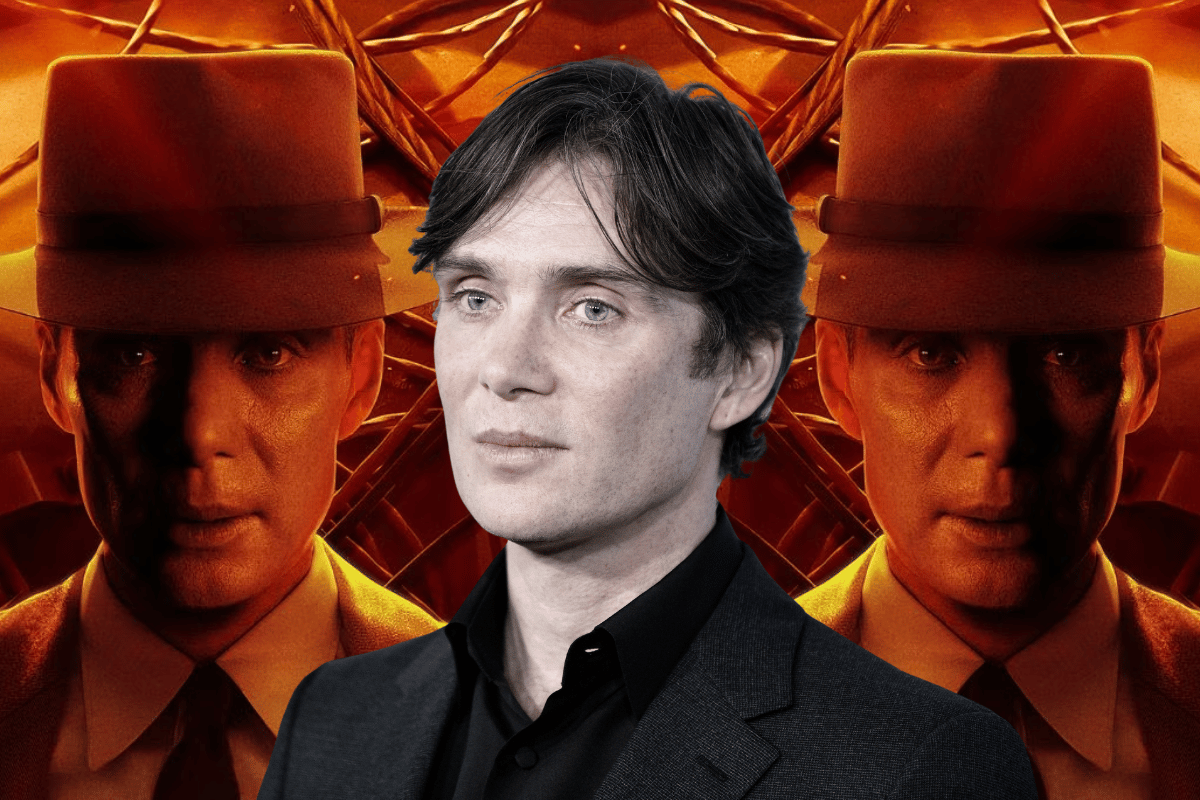Cillian Murphy: A Deep Dive Into The Autistic Representation In Hollywood
Cillian Murphy, an acclaimed Irish actor, has captivated audiences worldwide with his versatile performances and unique screen presence. Known for his ability to embody complex characters, Murphy's career has seen a significant highlight in his portrayal of Thomas Shelby in the hit series "Peaky Blinders." However, recent discussions have emerged around the topic of Cillian Murphy autistic, as fans and critics alike explore whether his acting prowess stems from personal experiences or an extraordinary level of empathy.
In this article, we will delve into the life and career of Cillian Murphy, examining the rumors surrounding his autism spectrum status. Through biographical details, professional achievements, and expert analysis, we aim to provide clarity on this topic while highlighting the importance of representation in media for neurodivergent individuals.
Join us as we explore how Cillian Murphy's journey can inspire others and redefine perceptions about autism in Hollywood. This article is crafted to offer valuable insights, backed by credible sources, ensuring a comprehensive understanding of the subject matter.
Read also:George Washington Hospital A Legacy Of Care And Innovation
Table of Contents
- Biography of Cillian Murphy
- The Discussion Around Cillian Murphy Autistic
- Cillian Murphy's Acting Career
- Neurodiversity in Hollywood
- Expert Insights on Autism and Acting
- The Importance of Representation
- Challenges Faced by Neurodivergent Actors
- Support Systems for Neurodivergent Talents
- Future Prospects for Neurodivergent Representation
- Conclusion
Biography of Cillian Murphy
Early Life and Background
Born on May 25, 1976, in Cork, Ireland, Cillian Murphy grew up in a family that encouraged creativity and education. From a young age, he developed a passion for acting, participating in school plays and local theater groups. Below is a summary of his personal details:
| Full Name | Cillian Murphy |
|---|---|
| Birth Date | May 25, 1976 |
| Birthplace | Cork, Ireland |
| Occupation | Actor |
| Education | University College Cork |
Key Milestones in His Career
Cillian Murphy's journey to becoming one of Hollywood's most respected actors began with his breakout role in "28 Days Later" (2002). Since then, he has starred in numerous critically acclaimed films and television series, earning accolades for his performances.
The Discussion Around Cillian Murphy Autistic
Is Cillian Murphy Autistic?
Speculations about Cillian Murphy being on the autism spectrum have surfaced over the years, fueled by his intense focus and dedication to his craft. While there is no official confirmation from the actor himself, fans often point to his ability to immerse himself in roles as evidence of neurodivergence.
According to the National Autistic Society, individuals on the autism spectrum often display traits such as deep concentration, attention to detail, and unique perspectives, all of which align with Murphy's acting style. However, it is crucial to approach such discussions with sensitivity and respect for the individual's privacy.
Cillian Murphy's Acting Career
Iconic Roles and Achievements
Cillian Murphy's career spans a wide range of genres, from action-packed blockbusters to intimate dramas. Some of his most notable roles include:
- Jim in "28 Days Later" (2002)
- Thomas Shelby in "Peaky Blinders" (2013–2022)
- Dr. Jonathan Crane in "The Dark Knight" trilogy
- Albert Einstein in "Oppenheimer" (2023)
These performances have earned him widespread recognition and solidified his status as a leading figure in the entertainment industry.
Read also:Melvin Franklin A Soulful Journey In Music And Beyond
Neurodiversity in Hollywood
Breaking Stereotypes
Hollywood has historically struggled with accurately representing neurodivergent individuals. However, recent efforts have been made to include more diverse voices and stories in mainstream media. Cillian Murphy's potential involvement in this conversation adds depth to discussions about inclusivity and representation.
According to a study published in the Journal of Autism and Developmental Disorders, media representation can significantly impact public perception and understanding of autism. By featuring neurodivergent actors and stories, the industry can help break down stereotypes and promote acceptance.
Expert Insights on Autism and Acting
The Intersection of Autism and Art
Experts in the field of psychology and performing arts have noted that individuals on the autism spectrum may possess unique strengths that enhance their creative abilities. Dr. Temple Grandin, a renowned autism advocate, emphasizes the importance of embracing neurodiversity in all fields, including entertainment.
For actors, traits such as heightened sensitivity and attention to detail can translate into powerful performances. Cillian Murphy's work exemplifies this intersection, showcasing how neurodivergence can enrich the arts.
The Importance of Representation
Why Representation Matters
Representation in media plays a crucial role in shaping societal attitudes and fostering understanding. For neurodivergent individuals, seeing themselves reflected in popular culture can be empowering and validating.
A report by the Autism Society highlights the positive impact of accurate portrayals of autism in films and television shows. By featuring characters and actors who authentically represent the spectrum, Hollywood can contribute to a more inclusive and empathetic society.
Challenges Faced by Neurodivergent Actors
Barriers in the Industry
Despite progress, neurodivergent actors still face significant challenges in Hollywood. These include limited casting opportunities, misconceptions about their abilities, and a lack of support systems within the industry.
Organizations like the Autistic Self Advocacy Network (ASAN) advocate for greater inclusion and accessibility in the entertainment sector. By addressing these barriers, the industry can create a more welcoming environment for all talents.
Support Systems for Neurodivergent Talents
Building Inclusive Environments
To support neurodivergent actors, it is essential to implement strategies that foster inclusivity and empowerment. This includes:
- Providing accommodations during auditions and productions
- Offering mentorship programs tailored to neurodivergent individuals
- Creating safe spaces for open dialogue and feedback
By prioritizing these initiatives, the industry can ensure that all voices are heard and valued.
Future Prospects for Neurodivergent Representation
Looking Ahead
As awareness of neurodiversity continues to grow, so does the potential for meaningful representation in media. Cillian Murphy's involvement in this conversation serves as a reminder of the power of storytelling and the importance of diverse perspectives.
With increasing demand for authentic portrayals of autism, Hollywood is poised to lead the way in promoting inclusivity and acceptance. By supporting neurodivergent talents and amplifying their stories, the industry can pave the way for a brighter future.
Conclusion
In conclusion, the discussion surrounding Cillian Murphy autistic sheds light on the complexities of neurodivergence in Hollywood. While there is no definitive answer to whether Murphy identifies as autistic, his contributions to the industry have undoubtedly enriched the landscape of entertainment.
We encourage readers to engage in thoughtful discussions about representation and inclusivity, sharing their thoughts in the comments below. Additionally, explore other articles on our site to learn more about the intersection of art and diversity. Together, we can build a more empathetic and understanding world.
Thank you for reading, and don't forget to share this article with others who might find it valuable!


